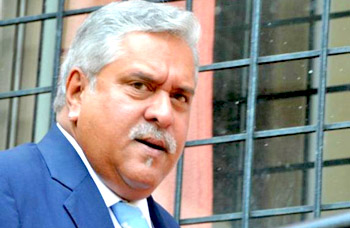Singapore, Sep 26: For the first time, the 100 richest tycoons in India are all billionaires with Mukesh Ambani topping the league for the eighth consecutive year, according to Forbes.
 With a net worth of USD 23.6 billion, up USD 2.6 billion from last year, RIL Chief Mukesh Ambani topped the list for the eighth consecutive year.
With a net worth of USD 23.6 billion, up USD 2.6 billion from last year, RIL Chief Mukesh Ambani topped the list for the eighth consecutive year.
Ambani was followed by Dilip Shanghvi, who got richer this year by USD 4.1 billion. Shanghvi is the new No. 2, after he displaced steel baron Lakshmi Mittal (USD 15.8 billion), who slipped to the fifth place.
Wipro's Azim Premji moved up one notch to the number three position as his net wealth increased to USD 16.4 billion from USD 13.8 billion previously. Pallonji Mistry, patriarch of construction giant Shapoorji Pallonji Group which is the biggest shareholder in Tata Sons with a new worth of USD 15.9 billion, was placed in the fourth place.
Forbes said that "good days are here" for the India's 100 Richest, as the top 100 richest Indians are all billionaires with combined wealth of USD 346 billion, up more than a third from USD 259 billion in 2013.
Propelled by the euphoria after the Bharatiya Janata Party's landslide victory in May, the stock market has gained 28 per cent since January, driving the net-worth of the uber-rich people in India.
The biggest dollar gainer is ports magnate Gautam Adani, who jumped 11 spots to 11th rank in the list, adding nearly USD 4.5 billion to his wealth which reached USD 7.1 billion on soaring share prices.
"Shares of Adani's companies started soaring ahead of the elections on hopes of a BJP victory. The gains added close to USD 4.5 billion to his wealth, more than anyone else," Forbes said.
Others in the top 10 include NRI businessmen Hinduja Brothers who were at the sixth position with a net worth of USD 13.3 billion, followed by Shiv Nadar (7th, USD 12.5 billion), Godrej family (8th, USD 11.6 billion), Kumar Birla (9th, USD 9.2 billion) and Sunil Mittal & family (10th, USD 7.8 billion).
As many as 85 of the 89 who returned to the top 100 from last year are wealthier, and several are billionaires for the first time.
Among them are Qimat Rai Gupta (ranked 48, net worth USD 1.95 billion), Chairman of Havells; V G Siddhartha (75, USD 1.27 billion), founder of the Cafe Coffee Day chain; and brothers Harsh Goenka (82, USD 1.18 billion) and Sanjiv Goenka (69, USD 1.4 billion), who run their independent empires and are listed separately.
UB Group Chairman Vijay Mallya is no longer a member of India's 100 Richest club, even as fortunes of the country's uber-rich have seen a significant growth since last year.
Mallya, who has been declared as 'wilful defaulter' by lenders following huge debts on his Kingfisher Airlines, is missing from the Forbes latest list of 100 richest released today. He was ranked at 84th position in 2013, with a net worth of USD 800 million.
With a record USD 1 billion as the minimum net worth this year, as many as 11 persons dropped out of this year's list including Mallya.
"The flamboyant Vijay Mallya, who was tagged by his bankers as a "willful defaulter," also dropped off," Forbes said.
The drop-offs this year also include, Brij Bhushan Singal, whose Bhushan Steel's shares tanked after son Neeraj was arrested in a corruption scandal, Forbes said.
In sharp contrast, the combined net worth of India's 100 wealthiest is USD 346 billion, up from more than a third from USD 259 billion in 2013, thanks to soaring stock markets which have gained 28 per cent since January this year.
Earlier in March 2013, Mallya was dropped from Forbes global rich list, while he had moved out of the billionaire league way back in 2012.
Amid huge debt burden and mounting losses at Kingfisher Airlines, Mallya's fortunes has been declining continuously over the recent years.
The airline owes Rs 7,600 crore to 17 banks. In February 2012, the banks had formally declared loan recall on KFA and began recovery process. They have recovered around Rs 2,000 crore by selling pledged shares.
Already, United Bank of India has won a legal backing on its decision to declare Mallya and other top executives of the airline as "wilful defaulters". India's largest bank SBI has also sent a notice to tag them as "wilful defaulters".
State-run PNB and IDBI Bank, and private lenders Federal Bank and Axis Bank are also in the process of doing the same.
Burdened with huge losses and large debts, Kingfisher Airlines stopped flying in October 2012 and its flying licence also lapsed about two months later.
About Mallya Forbes India in October 2012 had said that the 'king of good times' is having nothing but bad times lately.





Comments
Add new comment